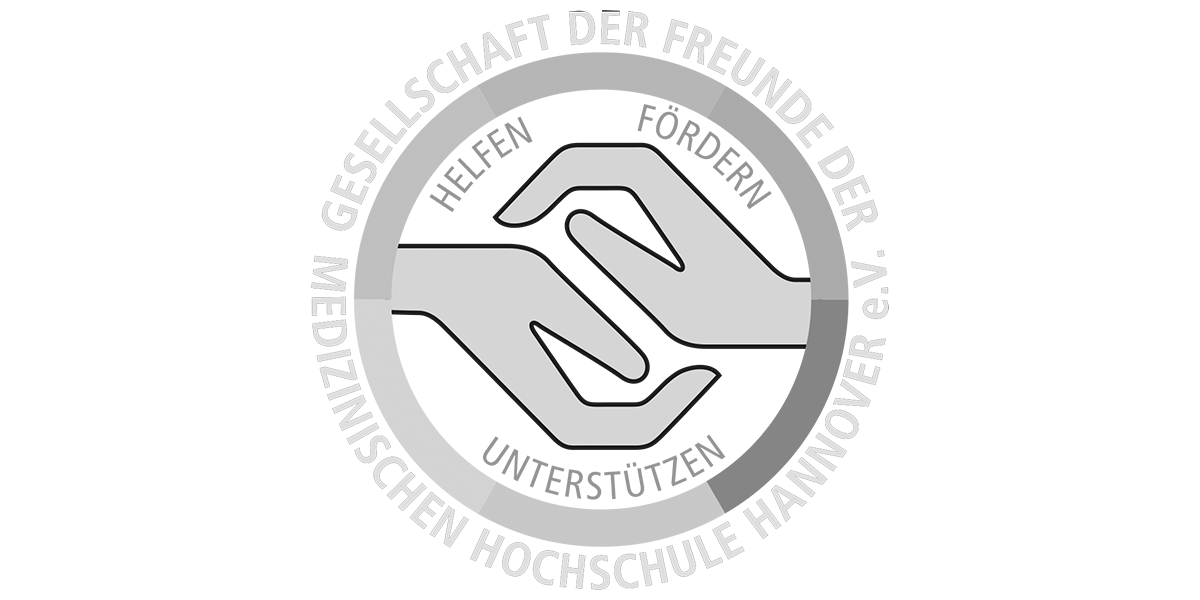"CDC73-Associated (Hyperparathyroid-Jaw Tumor) Syndrome" – What Is It?
CDC73-associated (hyperparathyroid-jaw) syndrome (HPT-JT) is a rare disease caused by mutations, i.e. genetic changes in the CDC73 gene (also HRPT-2). Affected individuals have a significantly increased risk of parathyroid tumors associated with hyperparathyroidism (primary hyperparathyroidism, PHPT), bone tumors (ossifying fibromas) in the upper and lower jaw and tumors of the kidneys and uterus.
How Is "CDC73-Associated (Hyperparathyroid-Jaw Tumor) Syndrome" Diagnosed?
Clinical Diagnostic Criteria
- PHPT AND ossifying fibroma(s) of the maxilla and/or mandible
- PHPT AND close relative with HPT-JT syndrome
- Ossifying fibroma(s) of the upper and/or lower jaw AND a close relative with HPT-JT syndrome
Diagnosis Confirmation
The clinical diagnosis is made by blood tests (measurement of calcium and parathyroid hormone) and imaging diagnostics (X-ray of the jaw, ultrasound of the kidneys and pelvis).
Genetic Diagnostics
The diagnosis of “HPT-JT” is confirmed by detecting a mutation, i.e., a genetic change in the CDC73 gene.
How High Is the Risk of Cancer?
Primary Hyperparathyroidism
- Main finding in HPT-JT found in up to 95% of patients
- Usually caused by a single benign parathyroid tumor, a second one can occur at the same time or with a time delay
- In 10-15% of cases, PHPT is caused by a malignant parathyroid carcinoma
- Occurs mainly in late adolescence to early adulthood
Jaw Tumors
- In 30-40% of HPT-JT patients
- Partial mass with increase in size, sometimes only detectable on x-ray
- Can interrupt tooth eruption from the jaw and/or impair breathing
Kidney Diseases
- 20% of HPT-JT patients have kidney involvement: Mostly cysts, hamartomas (tumor-like, benign tissue changes), or, more rarely, Wilms’ tumors (malignant kidney tumors)
- Cystic diseases can be a few small cysts but also kidneys interspersed with cysts on both sides
Tumors of the Uterus
- Found in about 75% of female HPT-JT patients, the average age at diagnosis is 35 years
- It can be benign or malignant
- The following can occur: Endometriosis, adenofibroma, endometrial hyperplasia, leiomyoma and adenosarcoma
What Is Known About the Development of "CDC73-Associated (Hyperparathyroid-Jaw Tumor) Syndrome "?
CDC73-associated (hyperparathyroid-jaw) syndrome is caused by a mutation, i.e., a genetic change in the CDC73 gene. This gene codes for the protein parafibromin, which plays a role in replicating genetic material. If the CDC73 gene is present in an altered form, the parafibromin protein can no longer function correctly, and tumors develop.
It is not yet known how common HPT-JT syndrome is. What is known is that the disease can be passed on from parents to their children. The inheritance is autosomal dominant.
Is There Any Form of Treatment Available?
Lorem ipsum dolor sit amet, consetetur sadipscing elitr, sed diam nonumy eirmod tempor invidunt ut labore et dolore magna aliquyam erat, sed diam voluptua. At vero eos et accusam et justo duo dolores et ea rebum. Stet clita kasd gubergren, no sea takimata sanctus est Lorem ipsum dolor sit amet. Lorem ipsum dolor sit amet, consetetur sadipscing elitr, sed diam nonumy eirmod tempor invidunt ut labore et dolore magna aliquyam erat, sed diam voluptua. At vero eos et accusam et justo duo dolores et ea rebum. Stet clita kasd gubergren, no sea takimata sanctus est Lorem ipsum dolor sit amet.
Diagnosis of " CDC73-Associated (Hyperparathyroid-Jaw Tumor) Syndrome" What's Next?
If you have been diagnosed with this cancer predisposition syndrome, it is important to see a specialist. The following section explains whether cancer screening tests or other measures are needed and how they should be carried out. We also give you some valuable tips on what you can do yourself. If you have any questions, please do not hesitate to contact us or your doctor.
Diagnosis of " CDC73-Associated (Hyperparathyroid-Jaw Tumor) Syndrome" What's Next?
If you have been diagnosed with this cancer predisposition syndrome, it is important to see a specialist. The following section explains whether cancer screening tests or other measures are needed and how they should be carried out. We also give you some valuable tips on what you can do yourself. If you have any questions, please do not hesitate to contact us or your doctor.
Medical Measures for Early Detection
There are no uniform screening recommendations for patients with CDC73 mutations. Based on the currently available literature, the following is suggested:
- Blood test annually, from 5-10 years of age
- Regular ultrasound of the parathyroid glands to detect the rare non-functional parathyroid carcinoma associated with a CDC73 mutation
- X-ray of the jaw at least every 5 years, regular professional teeth cleaning from the age of 10
- Ultrasound of the kidneys at least every 5 years, starting from diagnosis. Creatinine in the blood should be determined regularly in patients with known cysts.
- Women of childbearing age should undergo regular gynecological examinations. If menstruation abnormalities are present, a pelvic ultrasound should be performed, possibly followed by imaging examinations (CT or MRI).
CDC73-Associated (Hyperparathyroid-Jaw Tumor) Syndrome – What You Can Do Yourself
You Should Pay Attention to This
Hyperparathyroidism can manifest itself as bone pain. Kidney or gallstones can also occur, which can cause pain in the flank area or upper abdomen. Kidney cysts can also cause pain in the flank area. Urinary abnormalities or urinary tract infections can also occur. Tumors of the uterus are usually noticeable due to bleeding or changes in menstruation. Tumors of the jaw can cause the teeth to fail to erupt from the jaw, swelling and pain.
If you experience any of the above symptoms or other complaints or abnormalities, a visit to the doctor is urgently recommended.
Further Information
Unfortunately, we are not yet aware of any support groups for patients with CDC73-associated (hyperparathyroid-jaw tumor) syndrome. As soon as we have new information, we will add it. However, patients can register for the CPS registry at any time or have this done by the doctors looking after them.
Any further questions?
You can reach us by e-mail and telephone. You can also visit us in person during our consultation hours. For further information, please refer to our contact page.








